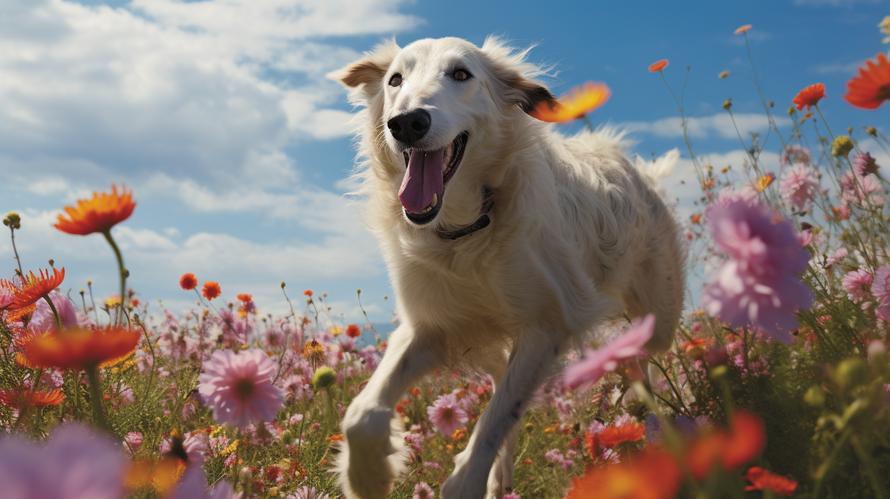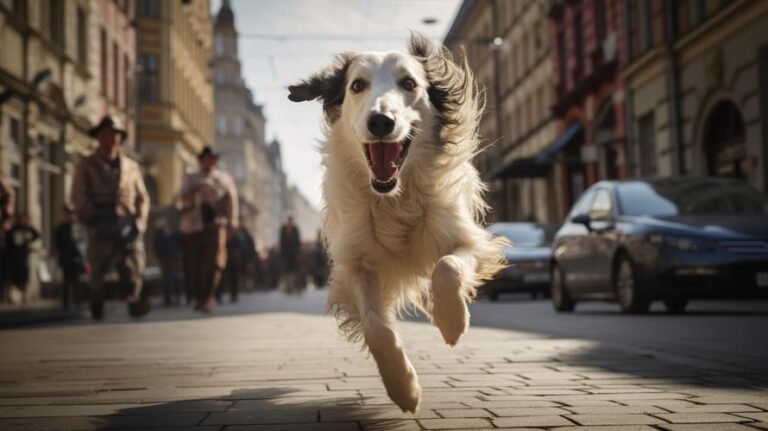Did you know that a Borzoi, formerly known as the Russian Wolfhound, was a favored breed for Russian nobility before communist rule overtook? This breed was exclusive and not available to common folk. Today, these tall, slender, and elegant beasts mesmerize many dog enthusiasts with their speed, agility, and fascinating looks. However, they are not the typical breed you’d see running around in a local dog park. You might wonder about their health. Are Borzoi dogs indeed healthy? Let’s explore.
Before we delve deeper, let’s grasp the basics about Borzois. This breed is a large, extremely athletic dog, with the grace of a ballerina and the speed of a racehorse. Typically, a Borzoi stands at a height of more than 30 inches at the shoulders and carries a weight of around 75 to 105 pounds. In a full sprint, they can reach dizzying speeds up to 40 miles per hour, which is merely a testament to their athleticism and health. Despite those intimidating numbers, Borzois are known for their calm demeanor, affection, and almost cat-like independence.
One of the most fascinating aspects of the Borzoi breed is their longevity. While most larger breeds of dogs have shorter life spans, Borzois often live as long as 12 to 14 years, which is quite impressive! Their general health and extended longevity can be attributed to the meticulous care taken in breeding Borzois, which has preserved the strength and hardiness of the breed.
However, like all breeds, the Borzoi is not immune to certain health issues. A potential Borzoi parent or owner should be mindful of these health problems and take necessary precautions.
One of the possible health conditions is Bloat or Gastric Dilation-Volvulus (GDV). It’s a life-threatening condition that can affect large deep-chested breeds, like Borzois, where the stomach becomes distended with gas and can even twist. The best way to prevent your Borzoi from contracting Bloat is to serve small meals throughout the day rather than one large meal and refraining from exercising them right after feeding.
Another health concern is cardiomyopathy, a heart disease. Regular screening and early detection can help manage this condition. Along with this, Borzois are known to suffer from orthopedic issues like hip dysplasia and osteochondritis dissecans due to their rapid growth and size. Regular exercise, a healthy diet rich in omega fatty acids, and regular vet check-ups can go a long way in preventing these diseases.
Also, they are prone to allergies, either food-related or environmental, which might cause complications for your furry friend like itchiness, dry skin, and irritation. If you notice your Borzoi scratching more than usual, it might be a sign to see your vet.
Taking a more proactive approach in understanding and caring for your Borzoi’s health can ensure they live out their maximum life expectancy. Regular vet checks, a balanced diet, daily exercise, and lots of love and care are essential to keep them thriving.
Despite these health concerns, Borzois, on average, are still considered a remarkably resilient and healthy dog breed. Like humans, all dogs are susceptible to certain conditions. Yet, the Borzoi’s innate robust health, coupled with responsible pet ownership, makes them one of the fittest breeds.
Considering bringing a Borzoi into your family? Here are a few tips to ensure you get a healthy puppy.
– Always choose a reputable breeder who can provide health clearances for defects.
– Schedule regular veterinarian visits for your Borzoi to keep an eye on any upcoming health issues.
– Make sure your Borzoi gets plenty of exercises. They are an active breed, after all.
– Feed your Borzoi a balanced diet.
In a nutshell, the Borzoi is a breed that stands out not only for its elegant and aristocratic looks but also for being generally a healthy breed, thanks to its long history and selective breeding. Like every dog breed, they may face certain health issues, but with proper care, education, and preventive measures, Borzois can be an ideal pet living a long, healthy life. Always remember, a healthy dog is a happy dog, and a happy dog means a happy home.



